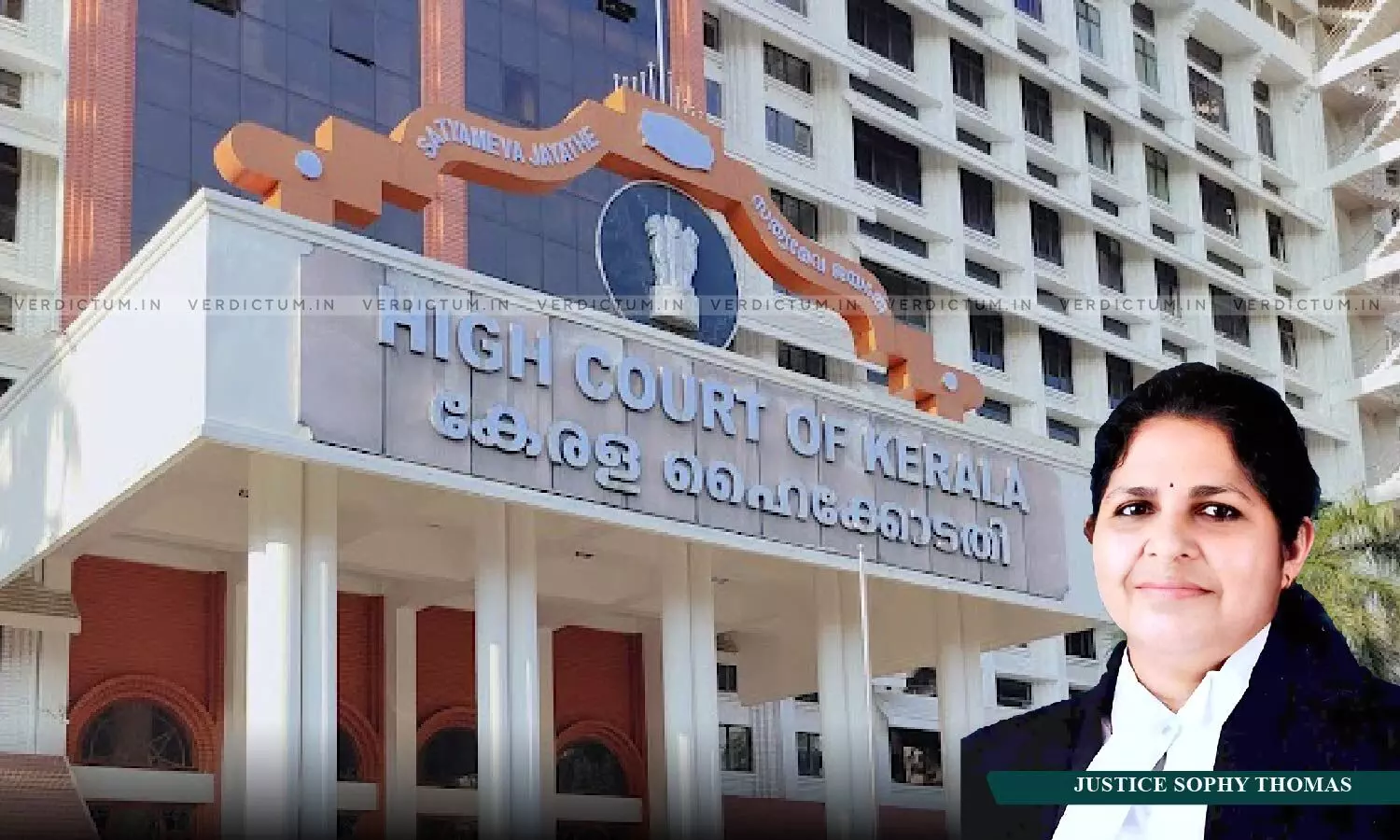
Acquittal For Abetment Of Suicide U/S 306 IPC Won’t Necessarily Lead To Acquittal For Cruelty U/S 498A IPC: Kerala HC
 |
|The Kerala High Court observed that the acquittal for the offence of abetment of suicide under Section 306 of the Indian Penal Code (IPC) will not necessarily lead to acquittal for the offence of cruelty under Section 498A IPC as both are distinct offences.
The Court observed thus in a criminal appeal filed by the accused challenging his conviction and sentence order passed by the Trial Court under Section 498A IPC.
A Single Bench of Justice Sophy Thomas emphasised, “… we could say with clarity, that offences under Sections 306 and 498A of IPC are distinct offences, for which separate charges are necessary. There can be a charge under Section 306 and 498A of IPC together, and conviction and sentence also can be imposed under both sections separately. Acquittal under Section 306 IPC will not necessarily lead to an acquittal under Section 498A of IPC or vice-versa.”
The Bench added that, even if the accused was charged only under Section 306 of IPC, and he was found not guilty of that offence, there is nothing improper in convicting him for an offence under Section 498A of IPC, on proof of commission of such offence, if from the statement of charge under Section 306, it was clear that all the ingredients for framing a charge under Section 498A existed in the case.
Advocate Renjith B. Marar represented the appellant/accused while Public Prosecutor M.C. Ashi represented the respondent/State.
Facts of the Case -
The appellant/accused was originally charge sheeted for an offence punishable under Section 306 IPC. As per the prosecution allegation, the accused was in a live-in relationship with the deceased and abetted her suicide in the year 2005. On committal and on appearance of the accused before the Trial Court, charge was framed against him under Section 306 IPC and he pleaded not guilty, claiming to be tried. He denied all incriminating circumstances brought on record and submitted that both fell in love and were living together harmoniously and two children were born to them. It was alleged that the deceased made some derogatory remarks against a neighbour lady and the accused scolded her.
One day when the accused went out for work and when he returned from his workplace, he came to know that his wife committed suicide by consuming poison. The Trial Court found that there was no sufficient evidence to find that the accused abetted suicide of his wife. Hence, he was acquitted for the offence under Section 306 IPC. But, from the testimony of prosecution witnesses, the Trial Court found that the accused had subjected his wife to cruelty both mentally and physically, which will attract an offence punishable under Section 498A of IPC. Therefore, he was convicted under the said offence. Being aggrieved, he was before the High Court.
The High Court in view of the facts and circumstances of the case, said, “From the evidence on record, it could be seen that there was no specific allegations of matrimonial cruelties, which prompted the deceased to commit suicide, except some general statement of harassment against the appellant. Though PW2 stated that, the accused used to assault the deceased, no complaints were ever preferred by her, alleging that she was subjected to cruelty by the appellant.”
The Court noted that the prosecution could not prove that the deceased was subjected to cruelties or harassment by the accused.
“There is clear admission from the part of prosecution witnesses that, there was no marriage at all between the appellant and the deceased and they were in a live-in relationship. So, the penal provision under Section 498A of IPC cannot be extended towards the appellant”, it enunciated.
The Court further remarked that if the accused had an opportunity to meet the ingredients of a charge under Section 498A of IPC also, in the charge framed against him under Section 306 of IPC, no injustice could have been caused to him, even if he was convicted under Section 498A of IPC, without a separate charge for that offence.
“But the facts of the case would reveal that there occurred failure of justice in convicting the appellant under Section 498A of IPC, as he had no notice of that offence, and he did not get an opportunity to defend the same”, it concluded.
Accordingly, the High Court allowed the appeal and set aside the conviction of the accused.
Cause Title- Suresh v. State of Kerala (Neutral Citation: 2024:KER:80744)
Appearance:
Appellant: Advocates Renjith B. Marar and Prabhu Vijayakumar.
Respondent: Public Prosecutor M.C. Ashi